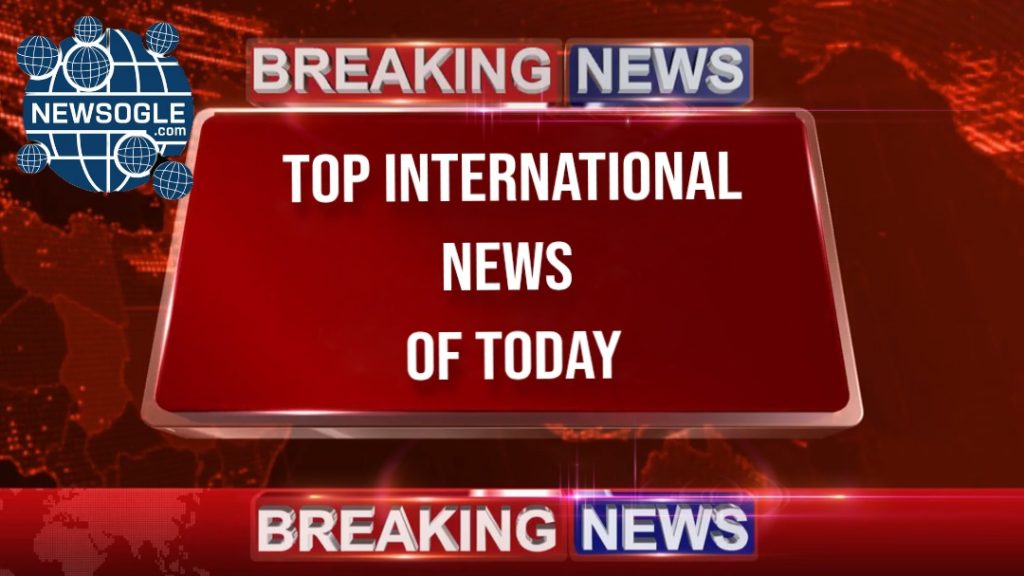
July 25, 2025 is marked by a confluence of crises and pivotal shifts: Gaza’s humanitarian tragedy and regional brinkmanship, relentless warfare across Ukraine, an escalating global trade shakeup, stunning climate and disaster events, the spread of new infectious disease, and a wave of social upheaval from Asia to Latin America. This comprehensive report draws together today’s most significant and fascinating international stories, painting a portrait of a world nearing a historic inflection point.
1. Middle East: Gaza Catastrophe, Ceasefire Hopes, and Regional Turmoil
Gaza: Hunger, Bombardment, and Desperation Deepen
- Civilian Toll Mounts: At least 38 more Palestinians, including 12 children, were killed in Israeli strikes across northern and southern Gaza, with attacks targeting makeshift tent camps in Rafah and Beit Hanoun that were meant to function as “safe zones.” As critical hospitals close from lack of supplies, relief groups now estimate total confirmed hunger deaths at 128 children under five since October.
- Malnutrition and Disease: The World Health Organization warns a lethal mix of famine and infectious disease is “imminent,” noting thousands of emaciated children and medics fainting on hospital rounds as Gaza’s food system collapses. Over 800 Palestinians have been killed at or near food aid sites since May due to crowd crushes, violence, and erratic deliveries involving private security, further undermining humanitarian trust.
- A Broken Aid System: UN agencies condemned both Israel’s blockade and the non-transparent practices of the U.S.-backed Gaza Humanitarian Foundation, now handling the bulk of food distribution. Reports continue of sporadic shooting at aid lines, chaotic logistics, and desperate families spending days without eating.
Ceasefire Talks: Flickers of Hope amid Gridlock
- Negotiations Narrow Gaps: Hamas submitted a “provisional acceptance” of a new U.S./Qatari ceasefire proposal after weeks of deadlock, with Israel’s war cabinet holding marathon “emergency deliberations.” U.S. White House officials said “differences are narrowing but not closed,” with the prisoner/hostage exchange, monitoring of a ceasefire, and scope of Hamas’ future arsenal still in dispute.
- Region Braces for Wider Conflict: Israeli jets struck alleged Houthi missile bases at Yemen’s Mocha port in retaliation for drone attacks on Israel’s Red Sea coastline—a signal the war’s regional flashpoints remain volatile. Israeli tanks moved on supply routes in Deir al-Balah, aiming to sever supply lines to central Gaza militants.
- International Outcry: More than 30 countries, including close U.S. and EU allies, issued their strongest joint condemnation yet, warning Israel’s “gradual starvation strategy” and “lethal denial of aid” may constitute war crimes. Egypt again warned that the humanitarian collapse was “risking the entire region.”
2. Europe and Russia: Ukraine’s War, Sanctions, and the Search for Peace
Relentless Russian Strikes and Civilian Crisis
- Kyiv and Odessa Attacked: Russia unleashed one of its worst air barrages in months—over 350 drones and cruise missiles stormed skies over Kyiv, Kharkiv, and Odessa, with Ukrainian air defenses intercepting most but at least 16 civilian casualties reported, including the destruction of parts of Odessa’s UNESCO Old Town and shipping infrastructure.
- Heritage and Economy Under Fire: Marauding missile waves also shattered railway lines crucial for grain exports, worsening Ukraine’s economic crisis. UNESCO condemned the “intentional targeting of cultural property” as a potential war crime.
Diplomacy, Sanctions, and Peace Overtures
- Stalled Peace Talks: Russia rejected new proposals in Istanbul, claiming Ukraine’s terms are “impossible” given ongoing NATO support and missile supply. Ukraine countered by calling for internationally supervised local ceasefires around food and energy infrastructure, a plan Western mediators are discussing.
- Western Sanctions Tighten: The EU and UK introduced new measures lowering price caps on Russian oil, broadening asset freezes and export controls, and adding dozens of Kremlin-linked military suppliers to sanctions lists. The U.S. is poised to follow after President Trump warned of “catastrophic” consequences if diplomatic progress continues to falter.
- Europe Faces Political Strain: Serbia saw renewed protests demanding free and fair elections, and Lithuania’s confirmation of withdrawal from key landmine treaties highlights the rearmament and mistrust pervading NATO’s eastern flank.
3. Global Trade: Turmoil, Protectionism, and Realignment
Tariff Wars and Supply Chain Upheaval
- U.S. Tariffs Ripple Globally: New 30% tariffs on EU and Mexican goods enacted by the Trump administration have shaken markets and forced desperate diplomatic outreach. U.S. tariffs on Asian car and tech imports (25–40%) triggered overnight currency slides in Seoul and Tokyo, with automakers bracing for profit crashes.
- Countermeasures and New Alliances: The EU and Japan announced synchronized retaliatory tariffs on key U.S. agricultural and digital goods. Indonesia, facing U.S. duties, signed a trade/energy agreement with China. Canada rolled back its planned digital services tax to win better deals but faces dairy industry revolt.
- Markets and Growth in Peril: The IMF’s outgoing deputy chief warned that “2025 may become the first truly global stagflation since the 1970s,” as growth forecasts are slashed, world trade appears to contract, and inflation expectations spike.
4. Asia-Pacific: Disasters, Political Tensions, Disease, and Securitization
Climate and Disasters
- Typhoon Wipha Hits Asia: Vietnam, southern China, and the Philippines reeled from Typhoon Wipha, with more than 500,000 evacuated, 37 killed, and $3 billion in crop/livestock losses. India and Bangladesh reported heavy monsoon flooding, with Delhi and Dhaka at red-alert levels for river surges.
- Japan and Europe Endure Heat: Tokyo peaked at 41.2°C, setting a July record and prompting government warnings for the elderly and infants.
Regional Security and Disease
- Kashmir, Taiwan, South China Sea Tense: India and Pakistan traded artillery fire at Kashmir’s Line of Control. Chinese and U.S. naval patrols in the South China Sea tested the boundaries of “freedom of navigation,” with the Philippines reporting a Chinese coast guard “water cannon attack” on its fishing boats.
- New Influenza Strain Emerges: Hong Kong health authorities confirmed the first human-to-human spread of a new H5N9 influenza variant, after 11 cases were found in Shenzen and 2 in Hong Kong, sparking a 48-hour travel lockdown and global health monitoring.
5. Africa: Humanitarian Emergency, Political Realignment, and Disease
Disaster and Crisis
- Sudan’s Agony Intensifies: Over 31 million Sudanese now require urgent food and health aid; aid convoys to Darfur face growing armed attacks. New cholera outbreaks in Nigeria and Mali (now over 16,530 cases) are overwhelming local clinics already battered by conflict.
- Ethiopia/DRC Conflicts: Ethiopia’s airstrikes in the Amhara region killed 34, reigniting violence. U.N. reports signal an upturn in displacement in eastern DRC, threatening a fragile ceasefire there.
African Summit and Diplomatic Moves
- Ghana’s Peace Conference: African and Latin American states convened in Accra, Ghana, calling for a global humanitarian corps to stabilize Sudan, Haiti, and Myanmar. The African Union declared “2025 the year of continental emergency response reform.”
6. Americas: Social Unrest, Natural Disasters, and Policy Upheaval
Disasters and Response
- Continued U.S. Flood Catastrophe: Texas flood deaths rose to 111, with 24 missing. Flood destruction in North Carolina and the Great Plains led to states seeking direct FEMA aid. Chicago’s lakeshore submerged neighborhoods; the Southwest faces water restrictions as Colorado’s snowmelt fails.
- Latin American Disease Outbreaks: Colombia’s dengue fever surge forced the closure of 20 schools; Cuba’s Zika virus cases spiked by 40% in one week, raising regional health fears.
Political and Social Shifts
- U.S. Congressional Showdown: The Senate blocked further foreign aid cuts, but President Trump issued a veto warning, tying new climate and disaster funds to stricter immigration and social spending limits.
- Brazil and Mexico Protest Tariffs: Both governments filed complaints at the WTO and signaled coordinated retaliation, including restrictions on U.S. tech and food companies.
- Argentina’s Economic Gyrations: In Buenos Aires, mass protests followed news that food price inflation reached 14% year-on-year, and the peso neared 1,500/USD in spot trading.
- Haiti and Venezuela Influx: Caribbean states braced for new migration surges as climate and security crises intensified.
7. Science, Technology & Law: Climate Rulings and Social Milestones
Historic Climate Justice Ruling
- ICJ Climate Verdict: In a precedent-shattering advisory opinion, the International Court of Justice ruled that states “must take urgent, science-based measures” to prevent transboundary environmental harm and may be liable for climate inaction affecting basic rights. The verdict, not binding, is expected to powerfully influence national courts and “loss and damage” litigation.
Social Rights Advances
- Hong Kong Transgender Rights: After the city’s top court backed bathroom access rights for transgender individuals, activists in Singapore and Taiwan accelerated campaigns for similar reforms.
- Saudi Execution Toll Criticized: Amnesty International condemned the Saudi government after reporting an “execution spike” this year, mostly for nonviolent drug crimes.
8. Table of Key Global Events – July 24, 2025
| Region/Event | Key Headlines |
|---|---|
| Middle East/Gaza | 38+ more Palestinians killed, 128 total hunger deaths, ceasefire gaps narrowing |
| Ukraine/Russia | 350+ drones/missiles bombard Kyiv/Odessa, peace talks stall, sanctions expand |
| World Economy | U.S. tariffs rock EU/Asia; trade diplomacy, realignments, IMF warns of stagflation |
| Asia-Pacific | Typhoon Wipha devastates Vietnam/China, record heat in Japan, new H5N9 flu warning |
| Africa | Sudan famine deepens, new cholera outbreaks, Ghana hosts global aid summit |
| Americas | Deadly U.S. floods, tariff outrage, dengue/Zika in LatAm, food price riot in Buenos Aires |
| Society/Science | ICJ climate ruling, Hong Kong transgender victory, Saudi executions under scrutiny |
9. Analysis: Tipping Points and Uncertainty
Gaza’s suffering and starvation have crossed the line from crisis to catastrophe: what is playing out is a textbook “man-made famine,” with aid blockades and erratic relief pushing civilian death and malnutrition to new heights. The region’s stability is threatened by the prospect of a wider war, even as nascent ceasefire moves offer perhaps the last window for de-escalation.
Ukraine’s cities, under the worst drone pressure in months, underscore the grim truth: escalation and attrition stand alongside negotiation, but with little that inspires hope for a meaningful breakthrough. European and global sanctions tighten, but the economic blocking and military bombardment continue to entrench divides.
Trade wars now threaten the postwar fabric of globalization. Protectionist spirals are upending market confidence, destabilizing currencies and employment from Asia to Latin America, and compelling a feverish search for new alignments and alliances.
Meanwhile, the world reels from nature’s wrath: climate-driven storms, floods, and heat waves stretch disaster readiness beyond breaking point. The ICJ’s unprecedented climate verdict casts a legal—and moral—spotlight on the obligation of states to act, potentially shaping lawsuits and policy for a generation.
Across continents, social movements, legal victories for rights, and pro-democracy protests highlight enduring resilience and struggle for justice. Yet, these too face pushback from economic hardship, policing scandals, and, increasingly, the crosswinds of a new disease threat.
10. Conclusion: The Stakes of July 24, 2025
With lives hanging in the balance from Gaza to Texas, from Sudan to Japan, the world faces a summer of danger and decision. The politics of famine, the fog of war, the realities of an unspooling global economy, and mounting climate and health crises demand urgent, coordinated action—and a recommitment to the rule of law and human rights. How leaders respond in the coming weeks will echo through world order long after today’s headlines fade.
This analysis is based on up-to-date briefings and confirmed reporting from Reuters, ABC News, Al Jazeera, CNN, WHO, Statista, and leading global news agencies, providing the most thorough synthesis of July 24, 2025’s defining international developments.





